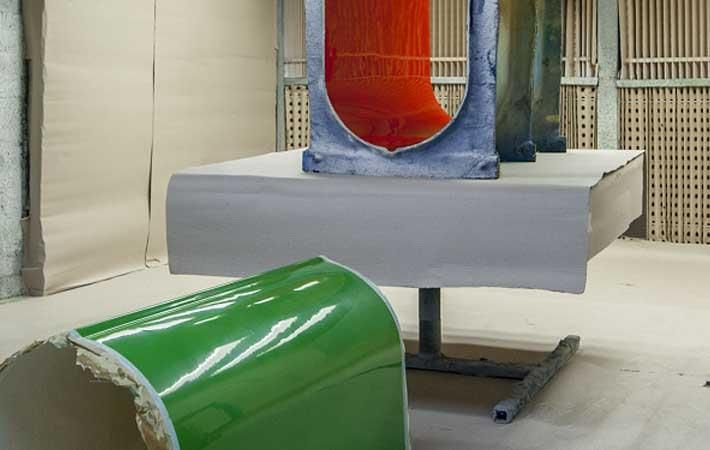Aliancys has unveiled new Neomould 2017-S-1 resin for manufacturing composite tooling. Its unique characteristics enable to make molds that perfectly mirror the surface and dimensions of the plug. The thixotropic nature of the resin allows for excellent application on vertical surfaces without sagging, making it suitable for making thick parts in one go.
For cost-effective manufacturing of composite components in small to medium sized production series (up to 500-1000 parts per year), composite molds are broadly used across the industry. While they bring the designer the ability to create unique shapes, composite tools also enable the manufacturing of large components like wind turbine blades, boats, and façade panels for buildings.Aliancys has unveiled new Neomould 2017-S-1 resin for manufacturing composite tooling. Its unique characteristics enable to make molds that perfectly mirror the surface and dimensions of the plug. The thixotropic nature of the resin allows for excellent application on vertical surfaces without sagging, making it suitable for making thick parts in one go.#
Compared to tools manufactured in steel, the production of composite tools is fast and versatile. For these reasons composite molds have built a track record of performance already over many years.
At the same time the processing of the resin is fairly easy and robust. Because of the thixotropic nature of Neomould 2017-S-1 resin and high viscosity at low shear rates, the application on vertical surfaces can be done without sagging. The low viscosity at high shear rates, makes the resin easy to apply in Hand lay-up and Spray-up processes. The combination of an enhanced thixotropic profile and optimized curing characteristics, make the resin suitable for producing thick parts (up to 12 layers of glass in one go).
Aliancys has also developed a new Neomould tooling brochure for guiding customers through the toolmaking process. Additional training and technical support are available for customers through Aliancys technical experts.
“Our customers want to make composite components with unique shapes, taking advantage of the great design flexibility these materials offer”, comments Rob van de Laarschot, head of technical service at Aliancys. “For them this means that the shape and surface quality of the mold must be perfectly aligned with the original plug. Aliancys can build on years of experience working with composite tooling materials, helping our customers to manufacture the perfect tool that can be used for making quality parts in consistent high volumes.” (SV)
Fibre2Fashion News Desk – India


